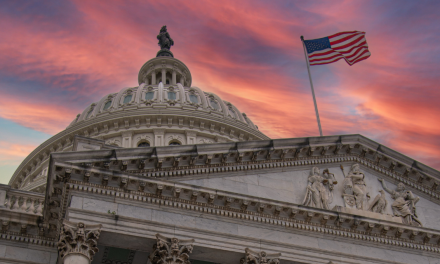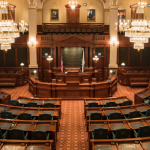
SLOW START TO 2022 Spring LEGISLATIVE SESSION

The 2022 spring legislative session of the Illinois General Assembly, designed this year to start fast and end early, has gotten off to a relatively slow start. When, historically, the legislature begins in January and does the bulk of its workload in late spring to meet an end-of-May adjournment, this year legislative leaders set an accelerated timeline. This year the schedule began on January 4th with an adjournment deadline set for April 8th.
But, first, due to an increase in COVID cases, then in deference to a fierce winter storm, legislative sessions were canceled for three consecutive weeks in January and February. Though committee hearings were scheduled to meet virtually during those weeks, many meetings were canceled. And for those panels that did meet, few bills were called for consideration.
This could result in a mad rush to call bills in the coming weeks, if, indeed, lawmakers plan to push through a full legislative docket. Many times, though, leadership limits the number of bills that are moved through the process in the second year of a legislative session. so only budgetary and “emergency” matters are considered. Time will tell if rank-and-file legislators are allowed time to call all of their bills.
Why Is The Schedule Different This Year?
Being an even-numbered year, this means it is also an election year in Illinois. And not merely an election year, but the first election after the re-drawing of legislative district boundaries. District boundaries are adjusted every 10 years after the census numbers are complete to reflect changes in population. This process becomes hyper-political in Illinois, and, in 2021, lawsuits were filed challenging the integrity of the new legislative maps.
In response to the litigation, and not knowing when it would be settled, the legislature passed a bill last spring to move the General Primary Election back from the usual March date to June 28th. The logic of accelerating the legislative schedule was to allow incumbents to get back to their new districts a little sooner to meet the voters of their new districts.
What Is The Workload For Legislators This Spring?
In 2021, the Senate saw 2,907 bills introduced, while members of the House of Representatives filed 4,096 bills, for a total of 7,003 individual pieces of legislation. Though most of these bills are buried in committees, any one of them could be brought back to life by having the bill re-posted for a committee hearing. Since the adjournment of last year’s session, the Senate has introduced 1,159 bills, while the House has filed 1,507 new bills. That makes the total number of bills for the two-year cycle 9,669.
Again, the vast majority of bills will not move through the process, but it is anyone’s guess as to which bills will and which ones will not be advanced. Last year, 695 bills were actually approved by the General Assembly and signed into law by the Governor.
Fiscal Year 2023 State Budget
The top priority for lawmakers this year will be the adoption of the budget for Fiscal Year 2023. Governor JB Pritzker delivered his joint State of the State/Budget Address on February 2nd. The Governor’s budget outline is the first step in crafting the spending plan for the new year. But ultimately, it is the legislature that has to approve appropriation bills that set the state’s spending. With the majority of the legislature in the same political party as the Governor, however, the final budget will likely mirror the Governor’s priorities.
In the Governor’s address, he presented an optimistic picture of the state’s finances. With the help of an infusion of federal funding, the budget is projected to run a surplus in the coming year. Pritzker plans to use the extra funds to pay off debt, including additional funds to attack the massive pension deficit, as well as provide additional funding for Medicaid, education, social services, and public safety.
Other Substantive Issues
ICS will continue to advocate for chiropractic physicians in the Capitol. Numerous measures are pending regarding licensure, insurance reimbursements, Medicaid, health care provider requirements and small business issues. In the coming weeks, the picture will become clearer on exactly which issues and bills are being advanced. Timely information on these bills will be available to you through our ICS legislative reports and other communications as the legislature moves forward.
To follow up on the ICS’ legislative success last year in allowing Medicaid to cover a greater range of chiropractic physician services, ICS continues to pursue implementation of enhanced coverage, accessibility and equality in the Medicaid system. We will continue our discussions by engaging key stakeholders, human services advocates and other policy-makers in the conversation.

















